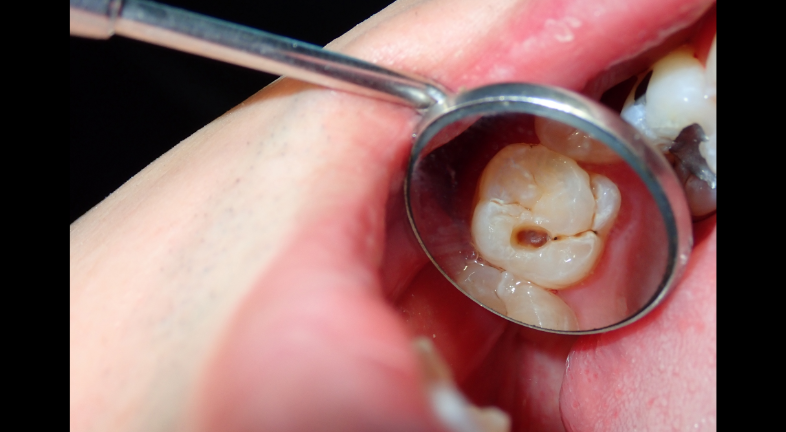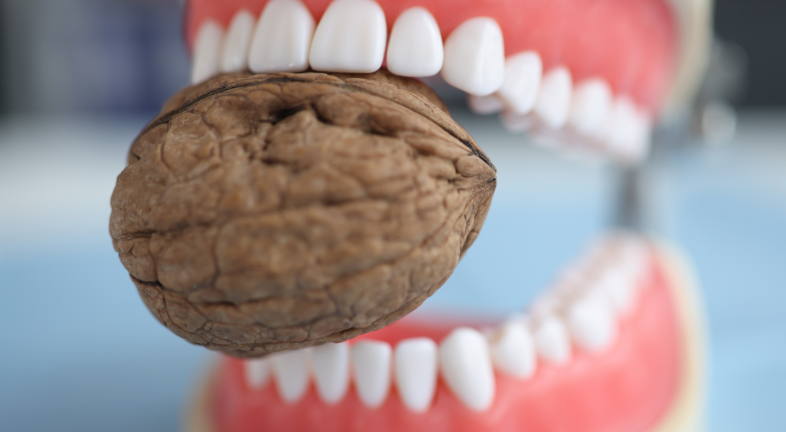
You finally finished your braces or aligner treatment. That moment when your teeth look straight, smooth, and finally where they should be. It’s magical. But here’s the catch: your teeth don’t just stay there on their own. They’re stubborn, always trying to drift back to where they started. That’s where retainers come in.
And right after the joy of seeing your new smile comes another thought: how much do retainers cost? Because let’s be honest, dental treatments already took a chunk out of your wallet. Another cost? Not ideal. But is it really optional? Not really.
So, let’s explore the retainer cost a bit to give you a clearer idea.

Teeth move. Always have, always will. After braces or aligners, they especially like to shift around — mostly because the ligaments and bone around them are still soft from treatment.
A retainer acts like a safety net, holding everything in place while your teeth “settle in.” Think of it as the final stage of your orthodontic treatment. Not wearing one could undo months (or years) of effort.
So when people ask if retainers are worth the cost, the short answer is, “Absolutely”. The long answer? Let’s talk numbers.
There’s no one-size-fits-all number because, well, retainers come in different shapes and materials. You can get removable retainers (like Hawley or Essix) or fixed retainers (those thin wires bonded behind your teeth). The type you choose, or your dentist recommends, changes the price quite a bit.
Here’s a rough guide to UK retainer costs:
| Type of Retainer | Average Cost | Notes |
|---|---|---|
| Removable Retainer (Essix) | £150 to £450 per set | Clear, plastic, popular, needs replacing every few years |
| Removable Retainer (Hawley) | £150 – £300 per arch | Acrylic base with metal wire, durable but more visible |
| Fixed/Permanent Retainer | £100 – £400 per arch | Bonded wire behind teeth, lasts years but needs upkeep |
| Replacement Retainer | £98 Approx. per arch | For lost, cracked, or worn retainers |
These are per arch prices. It means that if you need retainers for both upper and lower teeth, you’ll likely double those prices.
If you’re going through an orthodontist directly, costs can be higher (especially in London or big cities). Dental chains or mail-order retainer services might offer cheaper replacements, but always check that they’re dentist-approved and custom-fitted.
Here’s where it gets interesting. You might think that permanent retainer cost would be cheaper because they’re, well, permanent. But in reality, they usually cost more upfront.
A fixed retainer cost in the UK can range from £100 to £400 per arch, mostly because it requires professional bonding and precision. Once it’s in, though, it can last up to 5–10 years if maintained properly.
The removable retainer cost is cheaper initially, but they need more frequent replacements, especially if you forget to wear them or lose them (which, let’s be honest, happens).
So, which one’s better? That depends on you:
In the long run, the costs often balance out. Fixed retainers require maintenance visits, while removable ones might need replacements. Either way, both are investments in keeping your teeth straight.

If you’ve just had your braces removed, your dentist will emphasize one thing above all: wear your retainers.
Because after braces, your teeth are still “soft.” The ligaments that held them in their old position need time to adapt to their new one. Without retainers, teeth can start shifting back within weeks.
So even though you might feel like your orthodontic journey is over, retainers after braces are the finishing touch. The final, quiet hero that keeps your teeth looking good.
Skipping them? You could end up paying for braces all over again. And no one wants that.
If you’ve used clear aligners instead of braces, the rules are the same. In fact, maybe even more strict. Teeth can relapse faster because aligner treatments often move teeth subtly.
Many aligner companies include retainers in their aftercare packages, but if not, you’ll still need to buy a set. They’ll look a lot like your last aligner, but thicker and meant for long-term wear.
Even the best retainers wear down over time. The retainers replacement cost can sneak up on you if you don’t plan for it.
On average, Essix retainers last 1–3 years. Hawley ones can last 5–10 if you take care of them. Fixed retainers might stay intact for up to 20 years, but need repairs if the bonding breaks. A cracked or loose retainer is basically useless; it won’t hold your teeth properly.
A lot of people try to “make do” with a slightly warped one, but that’s risky. It’s like wearing shoes that are just a little too small. You won’t notice right away, but the damage builds up over time.

This one’s a bit tricky. The NHS does cover orthodontic treatment for under-18s who meet certain criteria (usually more severe cases). That includes one set of retainers after treatment.
But, and it’s a big but, if you lose or damage your NHS retainers, replacements aren’t covered. You’ll need to pay privately for a new one, often at full private cost. For adults, NHS coverage rarely includes orthodontic work, so your retainers are an entirely private expense.
So if you’re an adult finishing braces through a private orthodontist, expect to pay £100–£400 total for your retainers, depending on type and clinic.
It might seem like you’re paying a lot for “just plastic or wire,” but the cost of dental retainers includes more than materials. You’re paying for:
That’s why you’ll see variation in teeth retainer cost between clinics. A quick online service might be cheaper, but it won’t include follow-up visits or adjustments.
It’s tempting to think, “My teeth look great now, maybe I can skip it.” But here’s the reality: orthodontic relapse is real, and it doesn’t take long.
Skipping retainers could undo years of treatment worth thousands of pounds. So yes, retainers are worth it. The cost of a good retainer, even at £300 total, is nothing compared to redoing orthodontic work.
And it’s not just about straight teeth. Retainers help maintain your bite alignment, reduce pressure on your jaw, and protect your investment. They’re silent workers. You don’t notice them until you stop wearing them, and your teeth start shifting again.
A few practical ways to keep your retainers' cost reasonable without cutting corners:
It’s one of those things where prevention genuinely saves money.
Here’s something people don’t talk about enough: the emotional cost. When teeth start to shift after treatment, it’s not just cosmetic. There’s disappointment, frustration, maybe even guilt. All because of something that could have been prevented with a £100 retainer. And fixing relapsed teeth isn’t as simple as “wearing your old retainer again.” Usually, you’ll need a new round of aligners or braces to correct it. While you can opt for an affordable clear aligners option, it still costs more than retainers.
So yes, it’s worth budgeting for retainers. They’re part of the full orthodontic picture, not an optional add-on.
If you’re looking long-term, fixed retainers might actually save you money. Sure, they cost more initially, but you won’t lose them, forget them, or need replacements as often. But removable ones have their own perks. And frankly, they are hard to ignore. They’re easier to clean, more hygienic, and you can remove them for eating or special occasions.
Retainers are the unsung heroes of every orthodontic journey. They don’t get the spotlight like braces or aligners, but they’re the reason your smile lasts.
The retainers cost in the UK varies — somewhere between £100 and £400 per arch, depending on the type, quality, and clinic. The NHS may cover one set for eligible teens, but adults are usually on their own. However, when you balance it against the cost of retreatment — and the effort it takes to achieve a straight smile — retainers are one of the smartest investments you can make.
So yes, they’re worth it. Every time.







Curated the best for your knowledge
 Retainer Expenses: How Much Do Retainers Cost and Are They Worth It?
Retainer Expenses: How Much Do Retainers Cost and Are They Worth It?You finally finished your braces or aligner treatment. That moment when your teeth look straight, smooth, and finally where they should be. It’s magical. But here’s the catch: your teeth don’t just stay there on their own. They’re stubborn, always trying to drift back to where they started. That’s where retainers come in. And right after the joy of seeing your new smile comes another thought: how much do retainers cost? Because let’s be honest, dental treatments already took a chunk out of your wallet. Another cost? Not ideal. But is it really optional? Not really. So, let’s explore the retainer cost a bit to give you a clearer idea.
Read More Do Cavities Ever Go Away? Myths vs. Reality
Do Cavities Ever Go Away? Myths vs. RealityCavities, no one can stand them. That sharp, stinging pain in your mouth when trying to enjoy a nice meal can completely ruin your day. Usually caused by a lapse in oral hygiene, cavities can vary greatly in their level of severity. Most remain asymptomatic initially, but almost always grow excruciatingly painful as the decay worsens. Considering how disruptive a cavity can be, it's reasonable to assume that plenty of people wonder, “Can cavities go away?” The answer is a resounding no; you will almost certainly need some sort of treatment once decay has turned into a cavity.
Read More Is It Possible to Strengthen Your Teeth Naturally?
Is It Possible to Strengthen Your Teeth Naturally?Do you feel that your teeth are not as strong anymore? Maybe your teeth hurt when you bite into an apple, or you get dental sensitivity when eating something cold or hot? Well, you are not imagining it. With time, your teeth can lose their strength. You ask how? The short answer is weak enamel. Most people will lose the strength in their teeth with time. This can happen due to bad food choices, improper dental hygiene or technique, and even some genetic factors. But here is the thing, although your teeth can not grow enamel, you can still preserve it. There are many things you can do to strengthen teeth, including natural at-home methods. In this blog, we will discuss everything you can do to make teeth stronger.
Read MoreQuick Links

Heading